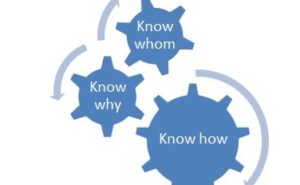 As the Open University Institute of Educational Technology has recently reminded us, we live in an age of rich information. Sometimes the sheer quantity may become overwhelming! However, with unprecedented amounts of knowledge available to us at the touch of a button, we are provided with unlimited opportunities to learn just by going about our everyday lives. This is what’s known as ‘incidental’ learning: learning without needing to be taught, in ways that are instinctive, unplanned, immersive and, at times, unintentional. Incidental learning happens as we go about our daily lives, interacting with others, carrying out activities and using technology. As the OU point out, this learning goes on throughout our lives, in many forms: play, exploration and discovery in childhood; teamwork, collaboration and problem solving in adult life; immersion in another culture when learning a foreign language; and so on. These are all examples of how we learn incidentally, and build a rich bank of knowledge over our lifetimes.
As the Open University Institute of Educational Technology has recently reminded us, we live in an age of rich information. Sometimes the sheer quantity may become overwhelming! However, with unprecedented amounts of knowledge available to us at the touch of a button, we are provided with unlimited opportunities to learn just by going about our everyday lives. This is what’s known as ‘incidental’ learning: learning without needing to be taught, in ways that are instinctive, unplanned, immersive and, at times, unintentional. Incidental learning happens as we go about our daily lives, interacting with others, carrying out activities and using technology. As the OU point out, this learning goes on throughout our lives, in many forms: play, exploration and discovery in childhood; teamwork, collaboration and problem solving in adult life; immersion in another culture when learning a foreign language; and so on. These are all examples of how we learn incidentally, and build a rich bank of knowledge over our lifetimes.
The richness and sheer variety of opportunity creates both challenge and opportunity for any organisation’s learning and development specialists.
 Incidental learning happens every day in the workplace, in a myriad of ways: induction processes for new staff; cross-functional teams working together; junior employees shadowing senior colleagues; and more. In such scenarios, workers investigate challenges, solve problems, and identify resources to help them do their jobs. They learn by being immersed in the workplace experience. Though it is potentially all around us, incidental learning tends not to be seen or valued by employers, as it’s not structured, tutor-led or certified.
Incidental learning happens every day in the workplace, in a myriad of ways: induction processes for new staff; cross-functional teams working together; junior employees shadowing senior colleagues; and more. In such scenarios, workers investigate challenges, solve problems, and identify resources to help them do their jobs. They learn by being immersed in the workplace experience. Though it is potentially all around us, incidental learning tends not to be seen or valued by employers, as it’s not structured, tutor-led or certified.
Businesses will increasingly become aware of how staff learn incidentally and the potential value it holds. They’ll recognise the important role it plays in building management capability, through knowledge-sharing, networking and negotiating activities. And they’ll increasingly seek to capture and share this knowledge, in order to improve organisational productivity, performance and growth. This is an area where learning and development and organisational learning/knowledge management overlap – at least potentially.
There’s now a host of workplace applications designed to drive the sort of experiences that prompt incidental learning. These include internal social media platform Yammer, cloud-based collaboration tool Slack, and crowd sourced innovation and partnering management software IdeaScale.
As so much of the UK economy generates value through “knowledge work” and so many of the UK’s working population are knowledge workers it becomes vital that organisations pool the collective knowledge and expertise of their staff. Very few organisations can now be sustainable unless they pool knowledge through some kind of organisational ‘learning bank’, almost certainly crowd-authored by the workforce itself — but, critically, retained after staff leave.
